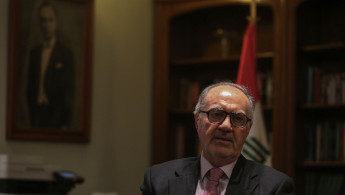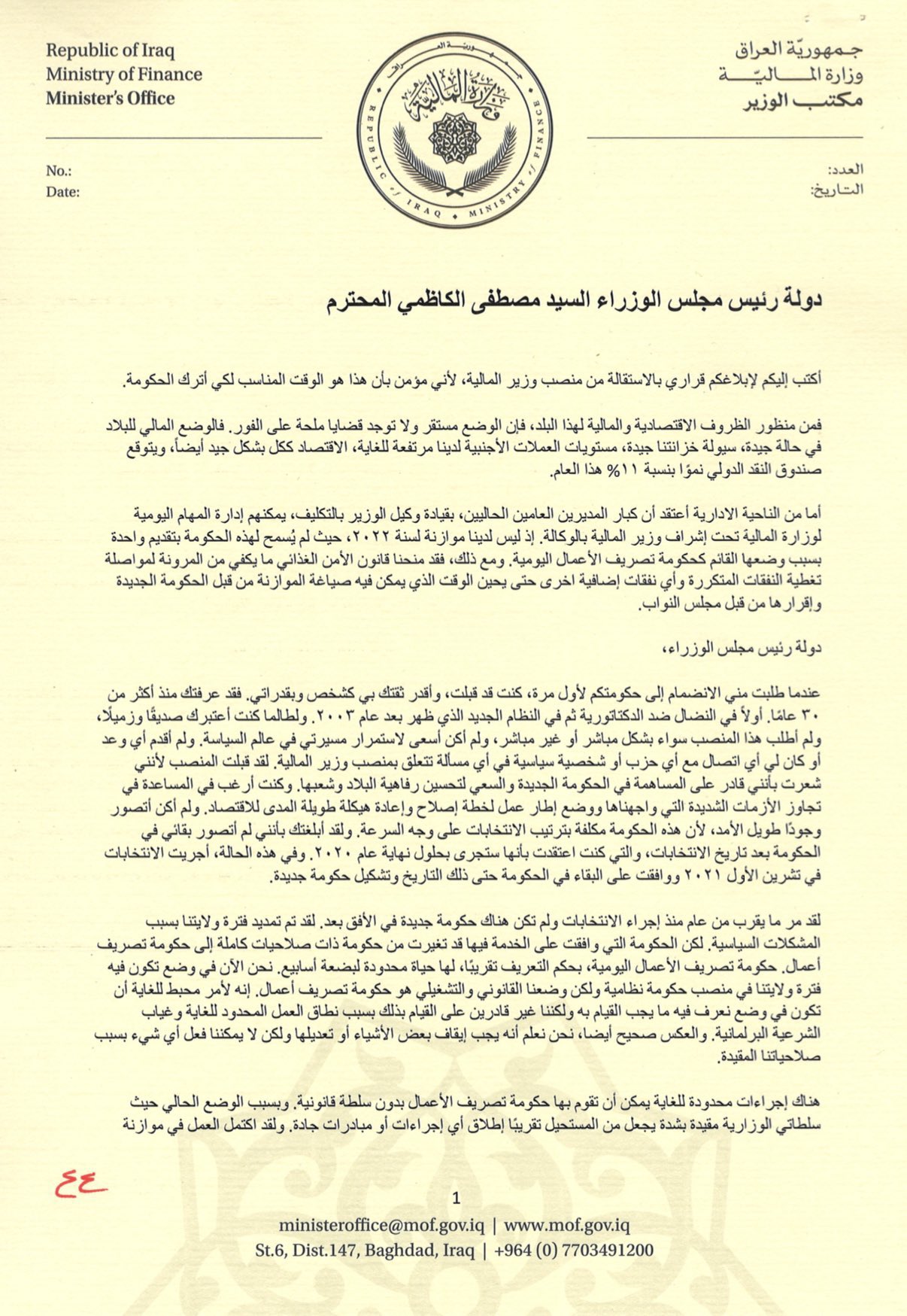Political deadlock, foreign meddling and corruption: Iraq's finance minister Ali Allawi clarifies why he resigned in a letter to the public
Iraq's former finance minister, who resigned during a cabinet meeting on Tuesday, outlined the reasons behind his decision in a resignation letter made public by Iraqi social media users and outlets.
In a 10-page-long resignation letter, Allawi blames the current political stalemate, rampant corruption by the political parties and ruling elites, and the interferences by foreign countries into Iraq's internal affairs as the main reasons behind his resignation.
Allawi, who was also the deputy prime minister in Mustafa al-Kadhimi's cabinet, took office in May 2020. His resignation was instantly accepted and Iraqi oil m0inister Ihsan Abdul-Jabbar has been appointed as acting finance minister.
"In the few weeks after I took office in the ministry for the second time, I knew the terrifying fact on what extent the government functionality has deteriorated in the past 15 years, in a way that the political parties, as well as the self-interest groups, have practically confiscated broad joints of the state," reads part of Allawi's letter published by Al-Sumaria News Iraqi outlet.
Allawi also served as Iraq's finance minister for a short period in 2006.
He clarifies in the letter that Iraq's current economic situation is "stable" and the financial conditions are "good" with a high foreign currency balance and an expected economic growth of 10 per cent for this year, according to the expectations of the International Monetary Fund.
However, Allawi says since he was in a caretaker government with constitutionally limited powers, as the political parties have not reached a deal to form a new cabinet, he could not "do what should be done" to serve Iraqi citizens.
He pointed out his key achievements, including saving Iraq from bankruptcy amid the covid-19 pandemic and decreasing the country's GNI due to record low oil prices.
The former minister also emphasised that he was for the decision to devalue the Iraqi national currency, which economic commentators argue has contributed to the collapse of the state.
Jamal Kochar, an Iraqi lawmaker from the Kurdistan Islamic Union and member of the finance committee, told The New Arab, "I do not think the resignation will have any effects on Iraq’s economy and finance."
The MP also said that Allawi has presented his resignation several other times, but the resignations were refused by PM Kadhimi.
"I think this time, Allawi was fed up with the situation in Iraq and some pressures upon him, thus he resigned and the resignation was eventually accepted," Kochar added.
Iraqi social media users reacted to the resignation, raising the question if Allawi will run for Iraq's premiership in the future.
Dr Ihsan al-Shammari, president of the Baghdad-based Iraqi Centre for Political Thought, described the resignation letter in a tweet as: "A formal death certificate of the Iraqi political system".
ورقة استقالة وزير المالية:
— د.احسان الشمري (@Ihssan_Shmary) August 17, 2022
شهادة وفاة ( رسمية ) للنظام السياسي في العراق.
Many Iraqis have speculated over the timing of Allawi’s resignation and the long letter he wrote to MP al-Kadhimi, might be a sign that he would be a future candidate for Iraq's most powerful job as the prime minister.
Allawi was born in Baghdad in 1947 in a prominent Shia family. He graduated from the Massachusetts Institute of Technology in 1968 with a B.Sc. in civil engineering and holds a Master’s Degree in regional planning from the London School of Economics, and a Master of Business Administration (MBA) from Harvard University.






 Follow the Middle East's top stories in English at The New Arab on Google News
Follow the Middle East's top stories in English at The New Arab on Google News


